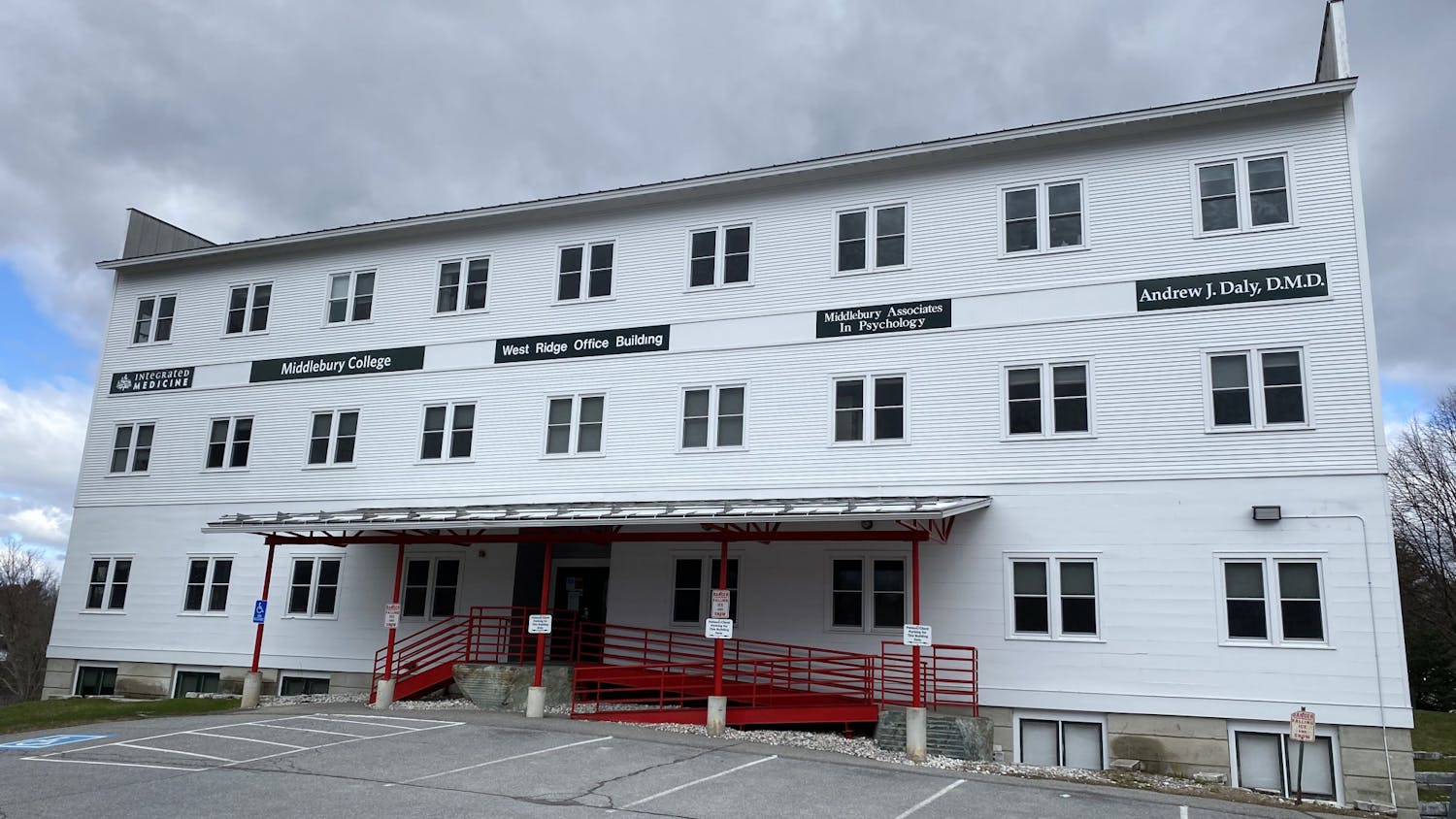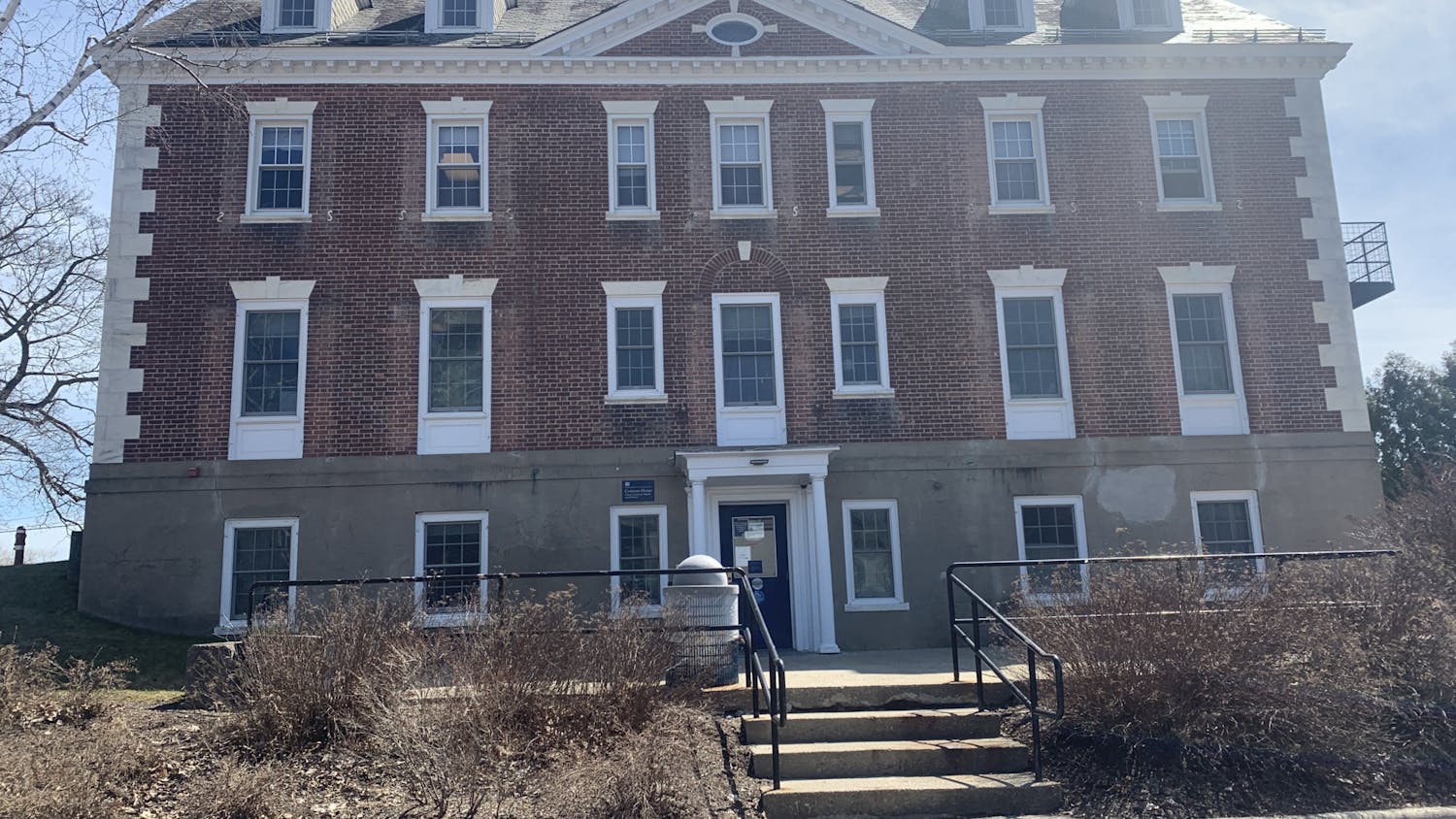As the fall semester wrapped up with a sharp spike in positive Covid-19 cases on campus, faculty passed a Sense of the Faculty motion calling for increased testing, with 75% of faculty voting in favor.
The motion serves as a formal request by the faculty that the administration institute Covid-19 surveillance testing for students and staff for the remainder of the 2021–22 academic year, as well as arrival testing for students returning from breaks. The motion was introduced by Professor of Film and Media Culture Jason Mittell on behalf of the Middlebury American Association of University Professors (AAUP) chapter’s Executive and Working Conditions committees.
“The faculty urge the administration to reinstitute Spring 2021 COVID testing protocols for the remainder of the 2021–22 academic year, including entry testing for all students after breaks, and ongoing surveillance testing for all students and employees working on campus.”
In the final weeks of the fall semester, more than 50 students tested positive for Covid-19, setting a new record number of cases at Middlebury. The college offered a limited number of optional asymptomatic testing during the second half of the fall semester, but testing was not required.
Following the uptick in cases, the college sent an email to students on Thursday, Dec. 9 requesting that all who were able to do so depart campus as rapidly as possible for a remote exam period. The final day of classes was also remote.
Mittell said that sending students home disrupted the college’s educational mission.
“One of the big issues that we saw last year,” Mittell said, “[was] the real disparities of student experiences, when they are doing things remotely, especially if they're not on campus.”
Mittell said that one of the important things wealthy institutions like Middlebury do is create a leveling effect on campus, giving all students a better opportunity to succeed.
“The student who's coming from wealth, and the student who is coming from poverty, on campus, they have equal access to a lot of things, right? They have equal access to computers, they have equal access to the internet, they have equal access to food, they have, you know, all these things,” Mittell said.
Mittell noted that while not perfect, the educational playing field is significantly more level on campus than off of it. This problem is especially relevant during exams, when silence, broadband and adequate space play an outsized role in student success. Mittell also said that academic dishonesty becomes more significant with off-campus remote learning, a problem many faculty worry about. He believes that the outbreak that sent students home, introducing the variability of conditions under which students completed their finals, could have been prevented with surveillance testing.
“We do not have any authority, or ability, to set those types of policies,” Mittell said of the faculty’s role in creating and enforcing Covid-19 policies. However, he noted that the Sense of the Faculty motion sends a message to the administration that faculty believe a policy change is necessary.
In an email to The Campus, Smita Ruzicka, vice president for student affairs, said that “the administration takes faculty motions into consideration even though it is not required to act based on them.”
Mittell explained that the faculty motion was in response to the outbreak rather than the choice to send students home. He theorized that if the college had required testing after students returned from Thanksgiving break, they could have prevented an outbreak at the end of the semester.
However, Mittell also acknowledged that given the high Covid-19 prevalence in Vermont, transmission could have occurred in the town of Middlebury.
On Dec. 13, Middlebury announced it would require pre-arrival and arrival testing for J-Term.
Surveillance testing has continued in the first weeks of J-Term, with new record high case numbers set after arrival.
Ruzicka emphasized that while Middlebury did not require testing for students throughout the fall semester, over 9,000 tests were administered, the vast majority of which were negative. Nine thousand tests is about the equivalent of 2,600 students getting tested three to four times over thirteen weeks, or if about 13% of the college’s on-campus undergraduate population were tested twice weekly over that same period.
By contrast, Williams College, which has a smaller enrollment than Middlebury and required surveillance testing during the fall, administered over 39,000 tests during the same time period, per Williams’ Covid-19 dashboard data.
Ruzicka said the administration did not feel that surveillance testing was necessary this fall.
“Along with the vaccination rate of 99 percent among students, some students also have already received boosters, well ahead of the College's February 14 deadline for all students, faculty, and staff to receive these,” Ruzicka said. The VT Department of Health and the CDC recommend routine testing for unvaccinated people but not those who are vaccinated.
Ruzicka noted that the testing provided had accomplished its goal. “As we have seen at other colleges and universities, testing is a tool to identify outbreaks, but does not prevent them,” said Ruzicka.
Mittell said that he believed testing may have prevented at least the scope of the outbreak at the end of the fall semester.
Mittell noted that while no students have been hospitalized, there has still been a large impact on the college’s educational mission.
“I, certainly, and many other faculty members have been getting emails from students saying, 'I can't get this done in time, because, you know, travel situation, my internet situation, whatever it might be,’” Mittell said.
“With only one day of classes remaining and exams the following week, allowing students to return home early made sense,” Ruzicka said of the switch to remote learning at the very end of the fall semester.
The Sense of the Faculty motion included an official rationale for recommending surveillance testing.
“Following the lead of every single one of our peer colleges by using entry and surveillance testing of the entire community is the prudent and responsible way to keep us all safe and focused on educating students,” it said.
Editor’s Note: Jason Mittell is The Campus’ faculty advisor.
Ben Wagner (he/him) is a Local Editor.
Wagner has previously served as an SGA Writer and Staff Writer. He is an IGS-Global Environmental Change major, and is minoring in Religion. When not up to other shenanigans, Ben loves playing outside and riding his bike.



